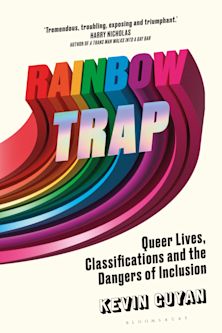- Home
- ACADEMIC
- Politics & International Relations
- Human Rights
- A Human Right to Culture and Identity
You must sign in to add this item to your wishlist. Please sign in or create an account
Description
Is it desirable, or even necessary, to have distinct human rights for cultural identities? Do different conceptions of culture and identity, and their potential to frame human rights violations as culturally appropriate, complicate the question? How should a human right to collective identity be outlined?
Claims to human rights as applying to a whole (ethnic, religious or cultural) group, instead of the individual, prove to be complex. This book reveals the pitfalls, benefits and demands that surround the debate for and against culture and identity in human rights. It connects a continuous and nuanced theoretical debate with highly topical empirical findings about collective rights for indigenous groups, which for centuries have been suppressed and marginalized and now stand at the forefront of (successfully) demanding a human right to their own culture and distinct identity. This book shows the ambivalences of those demands and discusses solutions so that human rights neither exclude marginalized cultural groups nor reproduce rigid distinctions between seemingly exclusive cultures.
Table of Contents
Product details
| Published | Jun 15 2016 |
|---|---|
| Format | Ebook (Epub & Mobi) |
| Edition | 1st |
| Extent | 192 |
| ISBN | 9781783486809 |
| Imprint | Rowman & Littlefield Publishers |
| Illustrations | 3 Tables |
| Series | Studies in Social and Global Justice |
| Publisher | Bloomsbury Publishing |
About the contributors
Reviews
-
Mende's book ably explicates what's at stake in debates over the human right to culture and identity--freedom and constraint; emancipation and repression--and offers a promising way forward as we navigate these tensions.
Hypatia: A Journal of Feminist Philosophy
-
A thoughtful reflection on a key topic of our time. Mende moves the debate to an alternative terrain, transcending classical associations of concepts of culture and identity and exploring the repressive and emancipatory dimensions of those terms. An enlightening read that combines theoretical discussions and empirical analysis.
Nieves Zuniga, Research Fellow in Politics, University of Nottingham
-
Culture is basically understood as the way of living for a group of people who have similar attributes and preferences. This book provides a useful guide to the background drivers and current practices on the subject. It not only covers the history of political thought but also provides a critical examination of political and social theories. It emphasizes the assumptions and ideas often used to explain roles and actions of society and government to define social and political aspirations about indigenous rights. It will be a good addition to the literature and serve as a good source of knowledge for students and scholars with an interest in cultural studies, sociology, social philosophy and global politics.
Saira Akhtar, Associate Professor of Sociology, University of Agriculture, Faisalabad



































